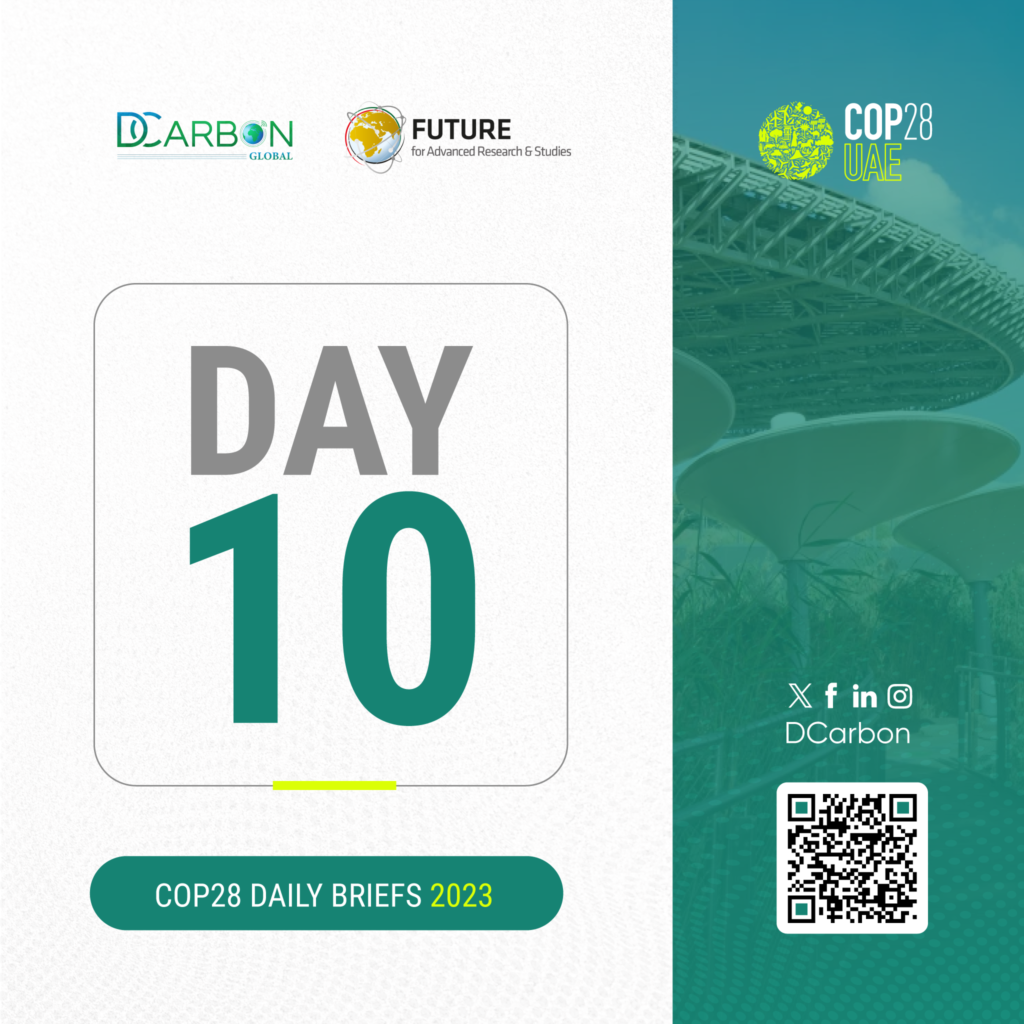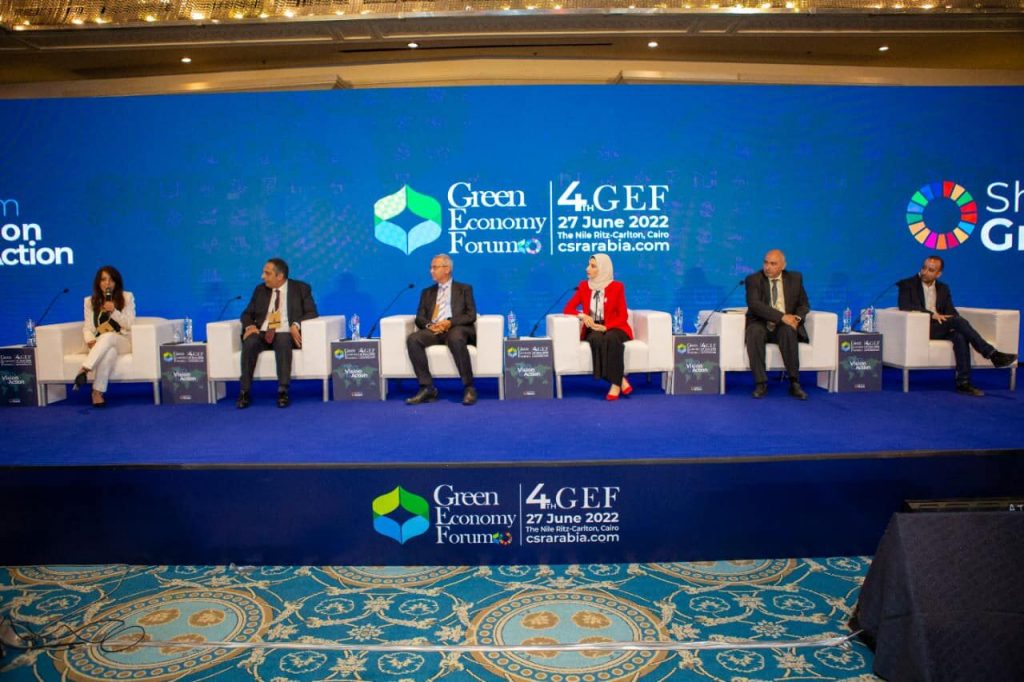Blue Zone
Challenge Launched at COP28 to Harness Artificial Intelligence for Climate Action in Developing Countries
Government leaders, United Nations and development cooperation agencies and business representatives convened today to discuss how AI can be used for transformational climate action in developing nations.
The UN Climate Change Technology Executive Committee (TEC), together with Enterprise Neurosystem, a non-profit open-source artificial intelligence (AI) community, has launched the AI Innovation Grand Challenge to identify and support the development of AI-powered solutions for climate action in developing countries.
“We are seeing increasing evidence that artificial intelligence can prove an invaluable instrument in tackling climate change. While we remain mindful of the associated challenges and risks of AI, the Innovation Grand Challenge is a promising step forward in harnessing the power of artificial intelligence and empowering innovators in developing countries,” said UN Climate Change Executive Secretary Simon Stiell.
H.E. Omar Sultan Al Olama, Minister of State for Artificial Intelligence, Digital Economy and Remote Work Applications, United Arab Emirates, said: “Harnessing artificial intelligence as a strategic asset to mitigate climate change involves integrating it into national policies and plans. This integration facilitates the use of data analytics to align policy with real-time climate data, thereby enhancing its efficacy and advancing technological development and scientific discovery in the field of energy. These measures and policies should not be viewed in isolation, but rather as a unified global initiative, acknowledging that climate change transcends geographical boundaries and requires concerted global efforts.”
H.E. Shantal Munro-Knight, Minister in the Prime Minister’s Office, Barbados, said: “We are partnering with international tech companies to test their ideas in Barbados whilst contributing to the island’s development. Some ideas include using machine learning and AI to check for the presence of tropical diseases, design hurricane resistant buildings and plan infrastructure investment. Collaboration, training and technology transfer are key to ensuring that AI contributes effectively to climate mitigation and adaptation for small island developing states.”
H.E. Moussa Bocar Thiam, Minister of Communications, Telecommunications and the Digital Economy, Senegal, said: “It is important to adapt the technology to take account of the digital divide, especially among those most vulnerable to climate change. Integration of chatbot voice with local languages in these emerging technology tools is one solution that would ensure the existing digital divide is taken into account.”
Mr. Ali Zaidi, Assistant to the President and National Climate Advisor, United States of America, said: “We must manage the risks and seize the promise of artificial intelligence. The United States is committed to doing so, as President Biden’s recent Executive Order on AI demonstrates. By working together, we can responsibly harness the power of this emerging technology to develop AI tools that help mitigate climate change risks, make our communities more sustainable and resilient, and build an equitable clean energy future for all.”
COP28 Must Mark a Shift From the ‘What’ to the ‘How’
UN Climate Change Executive Secretary “Simon Stiell” said it’s time for the COP to shift from the ‘what’ to the ‘how’ when it comes to boosting climate action by 2030. Speaking at the High-Level Ministerial Roundtable on pre-2030 Ambition earlier today, Stiell said halving global emissions this decade is not an aspirational task; it is something we must do if we are to keep the global economy functioning and protect billions of human lives.
He also Mentioned that the outcome of the Global Stock must also start laying out the ‘how’. It must agree on the tools and solutions that Parties need right now – to accelerate their climate actions across their real economies.
The high-level ministerial roundtable on pre-2030 ambition have seen government ministers discuss how to unlock an ambitious outcome on mitigation at COP28 by two key questions that framed their discussions:
– How should a COP28 mitigation outcome be framed to accelerate action to keep 1.5 alive?
– How do we ensure that everyone has access to technology and finance to ensure the climate solutions needed to enhance ambition can be implemented?
UNEP: Launch of the State of Finance for Nature Report
The report, launched to coincide with a day set aside at the latest UN climate conference for discussions on nature and land use, also highlighted the fact that these investments dwarfed the annual amount being invested in nature-based solutions, which totaled roughly $200 billion last year.
Nearly $7 trillion of public and private finance each year supports activities that directly harm nature – some 30 times the amount spent on nature-based solutions annually, according to a shocking UN report launched on Saturday at COP28 in Dubai.
The report from the UN’s environmental wing, UNEP, also revealed that despite decades of calls for ending finance flows towards sectors that harm some of humanity’s most valuable assets, those investments currently account for a whopping 7 percent of global GDP.
Saturday’s report launch comes as negotiations on the conference’s outcome text are shifting into high gear – COP28 is scheduled to close on Tuesday – and against the backdrop of the largest on-site action yet for climate justice.
10 years reducing emissions from deforestation and forest degradation (REDD+)
The COP28 event celebrates 10 Years of REDD+ and provides an overview of REDD+ development over the past decade, highlighting success stories and providing insights to raise REDD+ ambition in the coming decade.
Healthy forests play a crucial role in mitigating climate change by acting as carbon sinks, absorbing billions of metric tons of CO2 annually.
Since the Warsaw Framework for REDD+ was adopted in 2013, 60 developing countries have reported activities to reduce deforestation and forest degradation covering an area of about 1.35 billion hectares – approximately 62% of forest area in developing countries. This effort has led to a significant reduction in carbon dioxide emissions, with 17 countries reporting a decrease of 11.6 billion tons.
Green Zone
The Ocean, a vital element in the global climate system, holds untapped nature-based solutions and plays a crucial role in combating climate change. COP28 provided a unique chance for stakeholders across sectors to unite and scale up ready-to-implement solutions outlined in the Ocean Breakthroughs. These solutions, spanning five ocean-based sectors, could contribute up to 18% of the necessary emission reductions by 2030 and 35% by 2050, aligning with a 1.5-degree trajectory. The undeniable momentum for ocean-based policy frameworks at COP28 will significantly impact the ocean and dependent ecosystems. Fulfilling these solutions demands unprecedented levels of action, cooperation, and collaboration.
Unleashing the Green Energy Potential in the Middle East and North Africa Through a Conductive Business Ecosystem
A session in the Energy Transition Hub took place with the aim to discuss the opportunities and challenges of the clean energy sector in the MENA region, featuring discussions with leading policymakers from the region and prominent businesses in the renewable energy sector. A major challenge discussed is that only 2 percent of global investments in renewable energy over the past two decades have been allocated to the region, with noticeable disparities. From the opportunity side, the MENA region boasts abundant clean energy resources, particularly sunlight and wind, offering significant potential for solar and wind power projects.
Lessons on incorporating Gender aspects into the ETF and BTR processes.
This UNDP led session highlighted the importance of gender-disaggregated data/information in measuring results and understanding the impacts of climate change actions. It emphasized the need to define gender indicators in the planning stages, utilizing such data for baselines and socioeconomic analysis.
By strategically incorporating gender perspectives, countries can actively contribute to fostering women’s economic empowerment within the Biennial Transparency Report (BTR) framework. This holistic approach ensures that the benefits of improved connectivity are inclusive and promote gender equality, thereby enhancing the overall effectiveness and impact of BTR initiatives.
The Pathways & Lessons Learned Leading to a Just Transition Work
«For the just transition to work, it needs to be truly equitable, it needs to be truly inclusive and fair. » Jemimah Njuki (Chief of Economic Empowerment, UN Women)
For decades, countries, cities, and companies have developed and tested just transition initiatives across the world. This session took stock of international experience, progress, and challenges to inform the development of a just transition work programme under UNFCCC and national policies.
A major highlight of this session is showcasing a world of parallels between the biggest polluters not being the most harmed, bearers of the brunt have constrained capacity to fix the situation and advocating for changing the economic system doesn’t mean a willingness to change the variants.
Children are speaking up about the climate crisis.
“As children, we want to be part of the solution in dealing with climate change. But for us to do that effectively, we need mentorship. Without people and partners holding our hands, we wouldn’t know what to do with the opportunities that are presented to us. You cannot just put us out in the world with our many ideas. We will not succeed. After mentoring us, funding can follow.” Ernest, 13.
Young climate champions raised their voices at the Children and Youth Pavilion at COP28 to highlight that the climate change crisis is also a child rights’ crisis, and they should have a say in the matter.
Addressing Loss and Damage from Climate Change: Perspectives and Solutions from the Humanitarian Sector
WFP organized a side-event where national humanitarian actors (the first responders to loss & damage), governments and international humanitarian organizations discussed existing solutions to address and minimize loss & damage from climate change; focusing on the principles of urgency, localization, and prioritization of the most vulnerable in the most fragile and shock-prone contexts.





